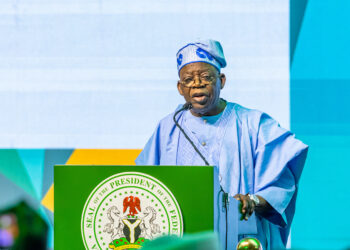The assumption that Nigeria is divided between those who “want” devaluation and those who oppose it is a false appearance. Any rational Nigerian, especially middle class individuals, who can be assumed to be rationally self-interested “want” a strong currency so that they can maintain real purchasing power and lifestyles in a globalized consumerist economy.
There is no division amongst Nigerians, especially within elite and middle class society on that erroneous basis! The real argument is over economics and its basic principles. Economics is all about how to reconcile “wants” and “needs” with “resources”-the most basic principle in economics is “scarcity” and the imperative of “choice” in a real world in which we can’t have everything we “want”.
According to The Economist’s “Dictionary of Economics”, scarcity refers to “a situation in which the needs and wants of an individual or group…exceed the resources available to satisfy them. In the presence of scarcity, choices HAVE to be made between those wants that can be satisfied and those that cannot be: the available resources must in some way be rationed, either through price or some central distribution system.
In the absence of scarcity, no difficult choices would need to be made, no prices would need to be attached to anything, and the study of economics would be rendered entirely unnecessary”. Exchange rates are a “price” with which an economy rations scarce foreign currency and the entire devaluation debate is about whether very scarce dollars should be rationed through the price mechanism or (as the beneficiaries of the current huge N200/$ subsidy argue) should be distributed administratively by the CBN to whomever it pleases!!!
So the question is not whether anyone “wants” devaluation, but whether given our current “economics”, is devaluation an appropriate or optimal policy response? The other question of course is, if you reject devaluation, what alternative AND effective policy response do you recommend to deal with the current policy quagmire? Just saying no and watching helplessly as the currency slides to N400/$ everywhere except in the CBN is NOT a policy response!!! By the way, we should take a step back and restate the facts-I agree entirely with Emir of Kano and former CBN Governor Sanusi Lamido who pointed out, completely correctly that devaluation of the currency HAS in fact already occurred! The debate is now over the appropriateness or otherwise of CBN using federation account resources (which jointly belong to the federal, states and LGAs) to subsidise foreign currency needs of selected businesses and middle class persons who travel abroad, educate their children overseas or seek medical treatment outside the country. For every other person who needs dollars in Nigeria, devaluation has already happened!
It should be noted that CBN has not provided any objective criteria on the basis of which it is allocating the scarce dollars, and questions may legitimately be raised on some of the published allocations! In effect the CBN is administering a huge subsidy based on unknown and unclear criteria, and without transparency on the basis of the allocations! The current situation guarantees moral hazard, corruption, subjective considerations, cronyism and crony capitalism, favouritism, influence peddling and administrative abuses.
I am willing to bet that central bank officials with the unfettered prerogative to administer this subsidy, not being angels or saints, may already be susceptible to one or more of these challenges!!! I have mentioned earlier in addition that this large subsidy is being shared not from resources that belong to the federal government or CBN, but the federation, including our insolvent states and local governments. While it is apparent that current policy has the concurrence of President Buhari, it is not clear that the states and LGAs if they fully understood what is going on, would endorse the “donation” of approximately half of their legitimate income to some businessmen and middle class families! I cannot think of a worse national subsidy anywhere in the world!!!
With regard to the businesses currently obtaining the tremendous FX subsidy from the national purse, it is evident that they benefit from an anti-competitive and unfair advantage over other businesses who are “less-fortunate” and it is not evident that the Nigerian economy benefits from the dispensing of such subsidies. One may also ask whether beneficiaries of our subsidized dollars discount their retail prices to fully reflect the public subsidy, relative to their competitors?
There is a fundamental economic illiteracy emanating from some of the contra-devaluation sources, including surprisingly from several who hold degrees and advanced degrees in economics-we do not export anything so we wouldn’t benefit from devaluing (so we NEVER want to export anything knowing that prices provide INCENTIVES for future behavior?); people should stop asking for devaluation and instead should start consuming locally produced goods and services (isn’t this argument illogical and contradictory?
If we want to discourage imports and encourage local production, why are we so determined to protect the Naira so that imports remain relatively cheap?); devaluation would lead to inflation (devaluation has ALREADY happened and is already reflected in inflation which is now 9.6% since most importers and manufacturers now get their FX from non-CBN sources and even those who get CBN FX subsidy know the correct cost of dollars); finally they say devaluation will hurt the poor, which is the biggest lie (the poor have nothing to do with exchange rates; they eat local food; do not send their children to schools abroad; get medical treatment from primary health centres; and get absolutely no benefit from whether you devalue or not!). The truth is that the only beneficiaries of subsidized FX are the few businesses who CBN in its grace “allocates” dollars to, and the segment of the elites who secure PTA, BTA, school fees and medical payments in foreign currency from the central bank!!! As well as those now able to “round-trip” official dollars into autonomous markets at huge profit!!!
The real situation, casting aside Nigeria’s powerful people who seek an unfair advantage through a privileged FX subsidy, is that the country built a defective economy in which 95 percent of exports and 75 percent of government revenue came from oil. That situation is no longer tenable and our monthly FX income has declined precipitously with the current exchange rate simply not sustainable. Worse still the current official exchange rates has resulted in the dry-up of foreign direct and portfolio investments; and even diaspora remittances which are required to be made at official or near-official rates have also dried up. Manufacturers are starved of inputs and our banking system is increasingly not credible in the global financial system and we may soon, if not already, return to cash-collateralized letters of credit and the scarcity of “essential commodities” as in the 1980s and 1990s!!!
We have seen this movie before, and we know how it would end!!! In 1980, oil prices fell due to a global oil glut. Nigeria had a fixed exchange rate and therefore could not use the pricing mechanism to modulate between demand and supply of dollars. Our reserves were quickly exhausted and then we started borrowing from the Paris and London Clubs, multilaterals and commercial creditors and soon we were trapped in debt which we could not service. We are already replaying this sequence seeking to borrow N2.2trillion or more to fund the 2016 budget; our debt service ratio is already 25 percent of federal revenue, even before we take the proposed huge loans; we have fixed our exchange rate at N197/$ and our reserves are fast declining (now at $27billion).
To deal with the scarcity of dollars in the 1980s, we tried everything except devaluation-austerity and import licensing, which was plagued by corruption and cronyism-we are doing the same today. Then Head of State General Muhammadu Buhari tried countertrade (trade by barter) which also failed miserably. Nigerians (and evidently President Buhari) learnt the wrong lessons from the 1980s episode-that Babangida “killed” the Naira!!! Former military President Babangida had his problems-a weakness of character that resulted in erosion of societal values and increased corruption; and political gerrymandering resulting in a protracted political transition and the eventual annulment of the June 12, 1993 elections. Babangida and all his military colleagues (Ironsi, Gowon, Murtala/Obasanjo, Buhari, Abacha and Abdulsalam) did one further damage to Nigeria-the subversion and destruction of institutions including federalism, constitutionalism, the universities, civil service, the professional bodies, the media etc.
However in relation to the economic crisis, all of his predecessors merely kicked the problem down the road, with Babangida being the only one with the courage to confront the problem! He did not create the economic dependency on oil and the policy elements that turned the Nigerian political economy into a prebendal, distributive, imported consumption-based society. In 1986 having exhausted our reserves and become indebted to the international community, devaluation was inevitable and unavoidable!!! Abacha tried the dual exchange rate system we are currently experimenting with, and that also failed!
As for the poor, they are now again the victims-losing their jobs in large numbers; poverty is increasing as output growth and consumption drops, and recession risks rise.
After Nigeria’s unprecedented elections on March 28 2015, exchange rates rallied from N225-N235/$ to around N200/$ as markets discounted political risk and imputed optimism into the Nigerian economy.
The current scenario where rates approach N400/$ reflects a gross failure of policy at the CBN, fiscal authorities and the presidency, and cannot be blamed on previous administrations. It is because we have left exchange rate management, and indeed broader economic policy to fear, speculation, drift, myths, superstition, politics and propaganda resulting in acute uncertainty and volatility.
Nigeria’s current imperative is to return to rational economics and the imperative of building a productive, competitive, export-oriented and diversified economy.
















